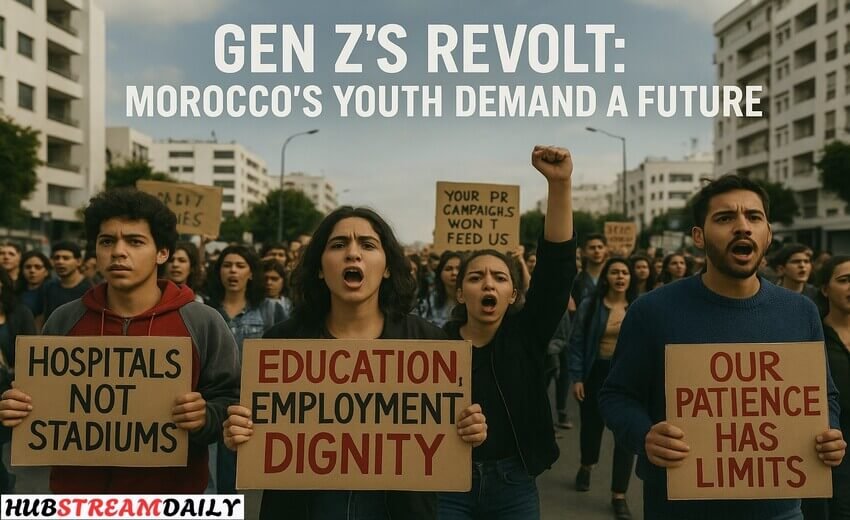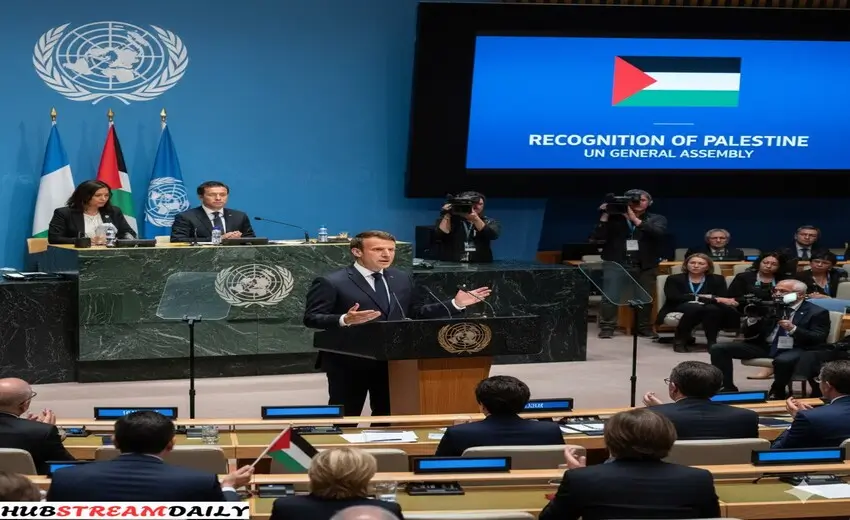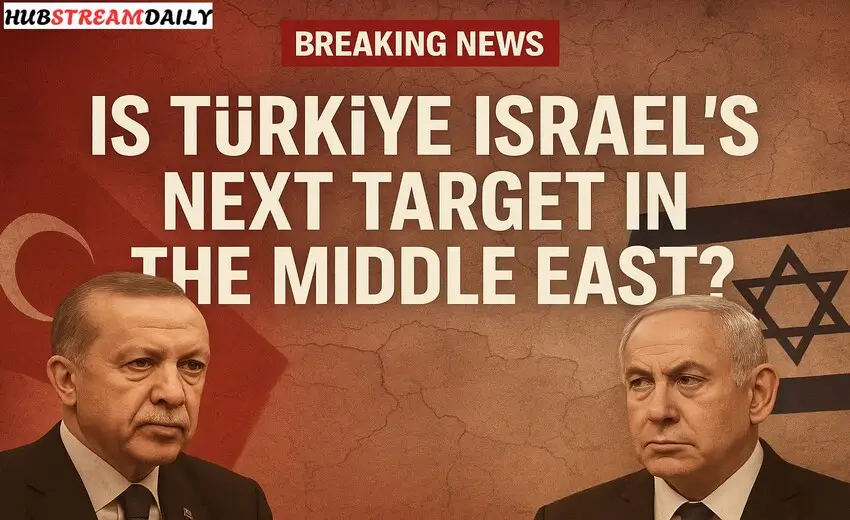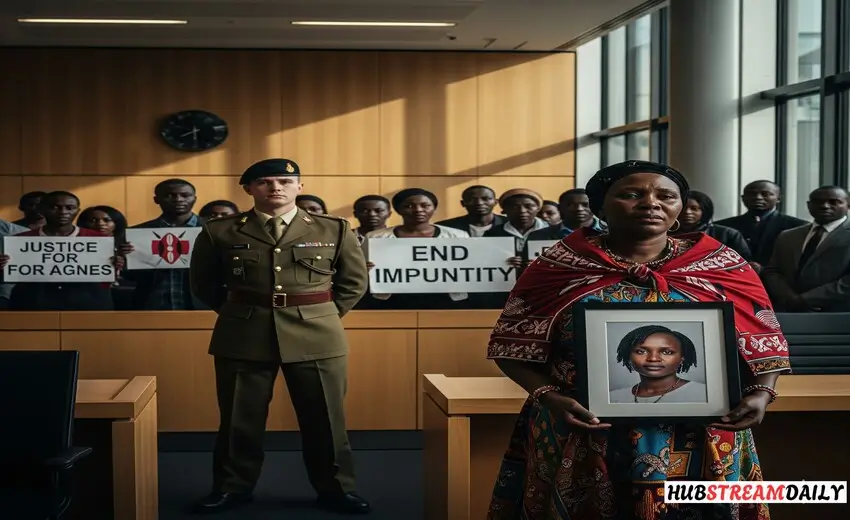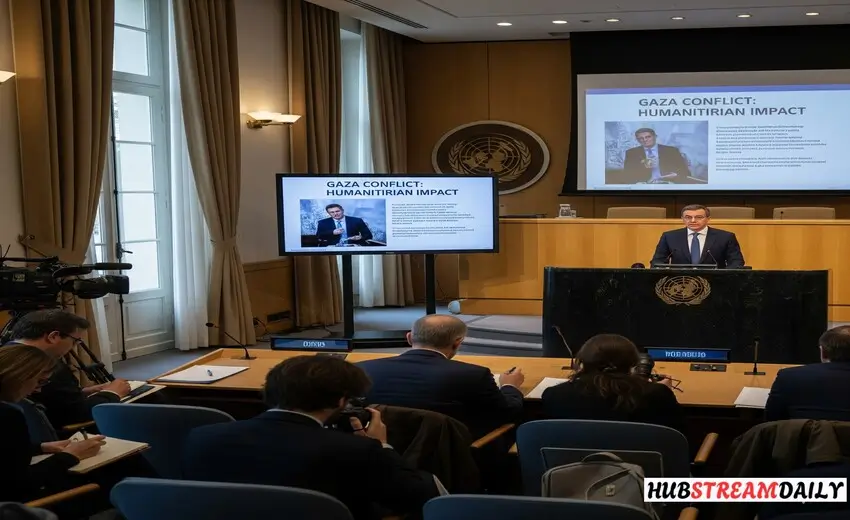
Gaza City, Gaza Strip – In the cramped streets of Gaza, motherhood is not just a role; it is an everyday experience that requires bravery, perseverance, and a will to live. For thousands of women, raising children in this war-torn territory means facing constant peril, shortages of fuel and other necessities, and uncertainty. All the while, they try to maintain a semblance of normalcy in a life enveloped in conflict.
A Childhood in Conflict
For mothers like Aisha, 32, the day starts well before dawn. “I wake up some days to the sound of explosions, others to the sound of children crying from being hungry,” she says, comforting her youngest son. With food and medicine sparse, each day is a careful calculation: What can I give them today, what do I need to save, how do I keep them from the next bomb?
Because of the “ongoing blockade,” Gaza is running short of necessities. Water is rationed, electricity is rationed, hospitals barely function, and schools continue to operate, and always under threat of crushing and death. For mothers, every decision — from feeding their children to getting them to school — becomes an act of strategy and hope.
The Emotional Weights of Being a mother in War
Gaza’s mothers have immense emotional weights over and above physical survival. Trauma, anxiety and grief are all part of the everyday; and humanitarian assessments consistently indicate that children living in a context of war are at much greater risk of experiencing psychological stress and emotional trauma. Mothers often carry the burden of shielding their children from this emotional trauma.
Layla, a mother of four said, “I read stories to my children, I sing lullabies and try to make them laugh no matter how chaotic everything is outside. They need some sense of normality.” In these moments, mothers create environments for emotional safety, and sow the seeds of resilience for the next generation.
Community and Collective Survival
Motherhood in Gaza transcends the family unit. Families rely on their neighbors, extended family members and community centres to survive. Women initiate and organize local actions, from food distribution to informal schools, when civil society fails. Samira, a local community volunteer says that “we share what we have”. If one child goes hungry, then every child goes hungry.
International NGOs acknowledge the vital role of mothers in sustaining Gaza’s communities. Programming that addresses maternal health, psychosocial supports and educational opportunities means that NGOs are delivering programs that empower women, and therefore support children growing up as safely as possible.
Courage When Faced with Uncertainty
Stories of courageousness are plentiful online—even against the bleakest of circumstances. Mothers are carrying children through war-torn streets, are protecting them from violence, and are finding ways to laugh despite the almost non-existence of daily pleasures. “We can’t control the airstrikes, the electricity cuts, or how much water we have,” Aisha says. “But what I can control are the values and practices I teach my children on kindness, courage, and hope. That is my battleground.’
The mothers of Gaza exhibit resilience that goes beyond the daily horrors of their lives. Their battle is not just about survival, but for their children’s future—a future that they can dare to dream may one day be free of fear and deprivation.
For Global Awareness and Action
International observers point out that we must support mothers in Gaza as an essential part of the humanitarian response as well as long-term peacebuilding. Providing access to health care, education, nutrition, and mental health directly contributes to children’s well-being and enhances community resilience.
For the global community, the lives and memories of Gaza’s mothers are a constant reminder of the ways in which violence is often assessed in military terms but ultimately exists through human stories of resilience, hope, and love. Every sign of motherhood in Gaza can be considered an act of resistance against the siege—denying the destruction of motherhood and the right to live.
Extended Section: Mothers as Change Agents
Beyond surviving, mothers in Gaza are converting their circumstances into possibilities for the future of their communities. Many mothers and women are functioning as informal educators, working with children on key skills, and their only means of tutoring is often in a constructed or overcrowded settings where schools are damaged or full. Some are leading local initiatives to provide clean water, nutrition, and psychological support to families in need.
Fatima is a mother to five children, and volunteer in the community; she said “We can’t wait for the world to fix everything. If we don’t take care of our children, who is?”. This shows how in Gaza, maternal care is not only under the umbrella of mothers, but indeed a method of bolstering resilience in communities.
Furthermore, mothers also serve as important sources of cultural and identity preservation. Through stories, songs, and rituals, they pass onto the next generation hope, pride, and history. Even in bombed-out communities, children decide what they will remember within Gaza’s culture, values and identity, and of endurance.
Healthcare and Maternal Needs
Maternal health care continues to be severely compromised in Gaza due, but access to prenatal services, medicines and emergency services means that having a child can be a risky endeavor. Nevertheless, women are overcoming the obstacles, frequently with the assistance of community and midwives, to ensure delivery. International non-governmental organizations (NGOs) describe how mothers in Gaza are still demonstrating incredible ways of being able to adapt to meet challenges while ensuring their children are able to receive vaccinations, nutrition and basic healthcare where feasible.
International Support
Local resilience is critical, but global support remains critical. Every time humanitarian relief enters Gaza, maternal health initiatives and educational programs that support mothers of all ages help lessen their daily burden. Experts emphasize that the empowered women of Gaza is connected to the well-being of their children, communities and society.
This is where just a few of many stories of bravery and creativity come in, as motherhood in Gaza is not a passive role, it is a position of leadership, whereby women perform a duty of defiance and hope when the odds are stacked against them.
Conclusion
Motherhood in Gaza stands as an incredible marker of human resilience. Each time a mother feeds a hungry child, holds them to peace them, or tells them a story, she reminds the universe that there is still hope. In a fragmented land filled with hopelessness and despair, mothers everywhere embody the right of their children to live, to laugh, and to dream.
In their courage we see that the human spirit can endure, even in the depths of despair. In a land like Gaza, motherhood is not simply that unique form of care—we are literally fighting for life.

